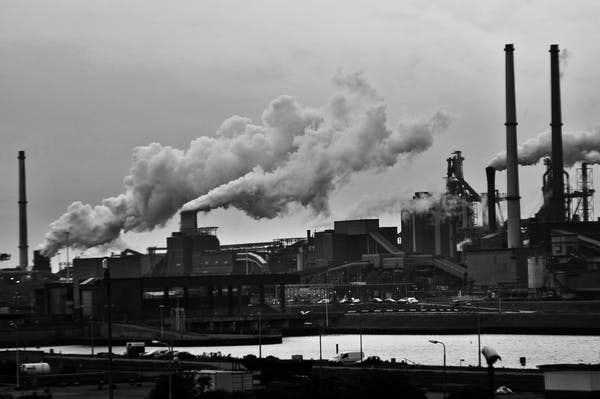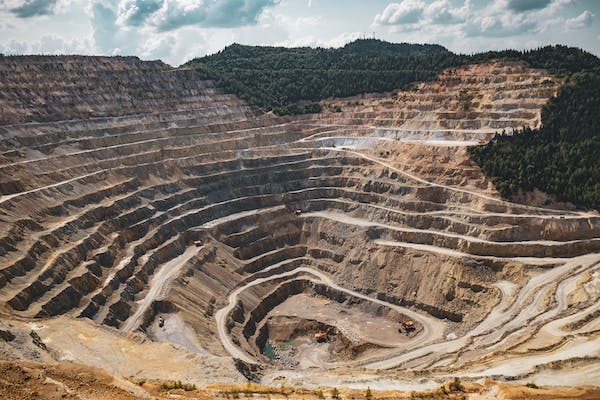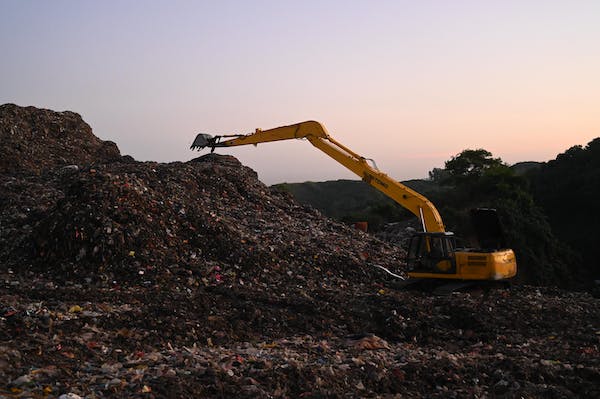Impact of Technology on the Environment
The thought of a life without technology is unthinkable, we rely so heavily on technology to make life easier and better for us. From the late 1700s to the early 1800s, the industrial revolution was the beginning of the world we know today. Consequently, developments in technology have, and continue to, occur more frequently and rapidly than ever before. This has had astronomical influence on humanity but also on our planet. Like everything, the technology we use, the processes behind it, and the waste produced all have an impact on our environment, and not a good one.
Resource use, energy use, waste, and carbon footprints all present huge concerns for the health of our environment. The life cycles of our modern technological devices come at a huge cost to our planet.

Pollution
When excessive quantities of harmful gases are released into the earth’s atmosphere, air pollution occurs. The main sources of air pollution were all developed during the industrial revolution: vehicles, factories, mass agriculture, burning fossil fuels, and power stations. Whilst these have all revolutionised the way we live, they have no doubt been cataclysmic in the advancement of climate change.
Combustion reactions release heat, and carbon dioxide, which is a greenhouse gas that subsequently enters the earth’s atmosphere and causes air pollution. Air pollution can have harmful consequences on human and animal health, as well as contributing to the increasing global temperature by trapping thermal energy within the earth’s atmosphere.
Mining
Mining for minerals also contributes to air pollution. The need for materials for devices and different technologies requires mining of finite natural resources. Mining is responsible for deforestation, destruction of landscapes, air and water pollution and the depletion of resources. All these have catastrophic impacts on the environment and its ecosystems. Mining processes often involve heavy machinery, all of which require fuel, usually fossil fuels, and release vast amounts of carbon dioxide into the air.

Carbon Footprint
Technology, particularly modern devices, require manufacturing which consumes huge quantities of energy. Transportation of such devices also consumes energy as do the servers and databases that enable technologies to function. These products often have a huge carbon footprint, but consumption and production of newer technologies means it is a never-ending cycle. With companies using planned obsolescence to ensure people purchase new products, the impact on energy and technology consumption and the consequent affect on the environment is much greater than initial beliefs.
E-waste
The end of a device’s life also impacts the environment. Only around a fifth of devices are recycled, the rest find their way to huge landfills in developing countries. The people living in these countries who are exposed to e-waste then must face the consequences, which they are often not well equipped for. Heavy elements used in devices can pollute groundwater which then harms or kills animals who drink that water. Plastic elements can take thousands of years to decompose and can break down into toxic particles. Landfills full of e-waste can release toxins which cause diseases or contribute to global warming.
E-waste has huge potential for proper recycling and reusing of finite materials. By recycling we can reduce the waste and environmental harm associated with the creation and destruction of modern technological devices.

Depletion of Resources
Resource depletion refers to the consumption of resources faster than it can be replenished. Technology uses and depletes many of the earth’s natural resources. Development and usage of technology requires increased industrial activity that requires raw materials from resources such as timber and coal. Extensive farming and agricultural activities also contribute to the depletion of resources. Large scale mineral and oil exploration has caused the exploitation of resources and led them into production decline. Similarly, the consequences of deforestation are severe, with many species becoming endangered or extinct.
There are new environmental technologies that are contributing to the fight against climate change, however we cannot reverse the environmental damage that has already been done.





